Your Planets
Portraits of the Planets
Aspects between Planets
The planetary ages
The planetary families
Planets in Signs
The Planets in comics
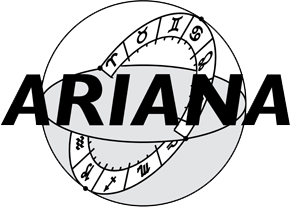

Astrology is very frowned upon by official science. She is referred to as “pseudo-science” by most academic scientists. It is accused pell-mell of being too old to be credible (it is 5000 years old), of being a commercial enterprise aimed at swindling gogos, of being in contradiction with the laws of known physics, of to convey a diffuse and fatalistic religiosity, to be unable to put forward the slightest proof of its concrete effectiveness, etc.
Regularly, eminent scientists from around the world challenge the public authorities to finally ban the practice of astrology, which for them is a false medieval knowledge that is as irrational as it is dangerous. These men have one thing in common: they have never bothered to study what they want to censor. When they are reminded that a real rational and scientific approach requires deepening one’s knowledge in a specific field before allowing themselves to criticize it or demonstrate its falsity, these “scientists” retort that they have no time to waste with astrology: it is obvious to them that it does not deserve the slightest interest.
Even worse: when they are presented with experimental evidence in favor of the reality of astrology, they refuse to examine it. Some even go so far as to disguise the facts to feed their obsessive anti-astrological neurosis. These are irrational and anti-scientific attitudes. From all this follows an experimental certainty: anti-astrology is not a science, but a hobby of the ignorant.
To take stock, here is a small dialogue, imaginary but realistic, between a rational astrologer and an irrational anti-astrologer.
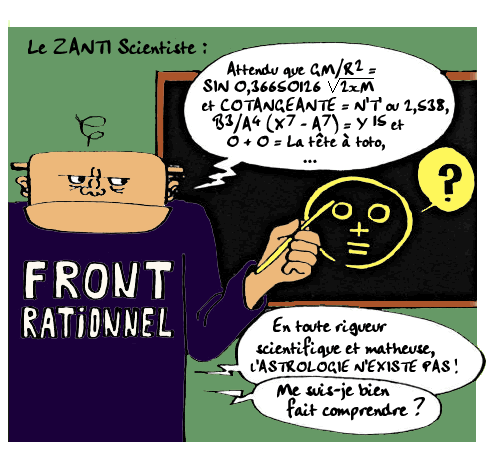
The anti-astrologer: Astrology was born 5000 years ago, at a pre-rational age of humanity. At that time, men believed in magic and had not yet discovered experimental science. I therefore believe that it is outdated knowledge that has nothing to bring to people today.
The astrologer: On the first point, you are right… but you forget to say that the majority of knowledge now recognized as “scientists” were born at the same time. Astronomy, for example, was built at the same time as astrology. According to you, its origins “pre-rational” would make her, if we follow your reasoning, a “pseudo-science”. Would astronomy be a “outdated knowledge”? And if so, why are you studying astrophysics? This argument is ridiculous.
You play on words. Astronomy is an experimental science based on precise measurements and has not stopped improving its results and knowledge of the laws of the universe since its birth. Astrology is a fossil knowledge that has hardly evolved since its birth. I will take just one example: the astrologers of the 20th century continue to refer to the Greek astrology of the 2nd century AD, as if our vision of the world had not changed since…
These arguments show that you know absolutely nothing about contemporary astrology. Knowledge in astrology has evolved. If you would take the trouble to study this subject rather than condemn it with declarations of principle, our dialogue could be a little more fruitful. Moreover, ancient astronomers and astrologers believed together that the Earth was at the center of the universe, which was indeed a mistake…
Astrology always assumes that the Earth is at the center of the universe, when we know very well that is not true.
You are wrong. I am an astrologer, and I know very well that the Earth is a planet that revolves around the Sun, which is only one star among billions of others. Nevertheless, if we want to study what are the influences of the cosmos on terrestrial living species, we must observe these phenomena while keeping our feet on Earth.
Let’s move on. The signs of the zodiac that astrologers use no longer correspond to the constellations that bear the same name. For example, when astrology claims the Moon is in Aries, it is actually in the constellation Aquarius. The assertions of astrology are therefore in total contradiction with astronomical observations.
I measure once again the extent of your ignorance in the field of astrology. This discrepancy between Signs of the zodiac and constellations is due to the phenomenon of precession of the equinoxes, discovered by Hipparchus of Nicaea, a Greek astrologer by the way. Each year around 21st March, the Sun crosses the plane of the equator at a given point; it is then, at the spring equinox, that increasing days become dominant in duration in the northern hemisphere. Due to the spinning motion of the Earth on its axis, this equinoctial point moves about 30° every 2100 years. As a result, the decor of stars on the background of which the planets move also moves. When astrology was born, astronomers and astrologers were unaware of the existence of this phenomenon. Today, only a few traditionalist astrologers and remaining astronomers confuse the stellar decor (the constellations) and the Signs of the zodiac. To be born under the sign of Aries, for example, means for a modern astrologer that the Sun is just above the equator, in the northern hemisphere, and that for this hemisphere the increasing length of days is greater than that nights. Nothing to do with the backdrop of stars that serves as a backdrop and landmarks for astronomical observations. Are you so obsessed with your primary anti-astrologism that you are unable to understand it?
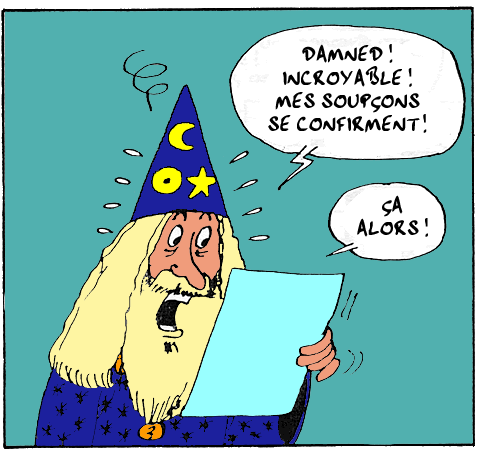
Physics can oppose a decisive argument to the existence of hypothetical astrological influences. It is based on the laws of gravity. For example, for an individual born in Paris, the gravitational influence of the La Défense towers is immeasurably larger than that of any planet in the solar system. The closer and larger a physical mass is, the more powerful gravity it exerts on its surroundings. However, the planets are very far away, and their gravitational impact very weak, if not non-existent…

You seem to me as ignorant in matters of astrology as in physics, which is the height for an astrophysicist! The phenomenon you describe exists only in the simplistic conception of gravity, imagined by Newton a few centuries ago and today totally outdated. If your reasoning were well-founded, that is to say if human beings responded mechanically to the laws of gravity, the strong concentrations of population would only exist around the largest buildings of the largest cities, which would be built around of the most massive mountains. However, it is not. The reactions of the human organism to gravitational influences are therefore far from being as simple as you have just asserted. Your reasoning is unrealistic and unscientific. It’s not the towers of Defense that influence you, but the towers of Insanity. In addition, I want to ask you an essential question: how long is the sidereal revolution of a La Défense tower?
What do you mean by that?
Remember that the sidereal revolution of a star is the time it takes to make a complete turn around its center of attraction. If the planets exert an influence on us through the laws of gravity, this influence, even weak and subtle, is periodic and regular. To condition an individual, it is necessary to subject him periodically and regularly to the same signals. Defense towers are inert, so unable to create any conditioning.
In any case, no known physical law can account for any astrological influence. For that reason alone, astrology is nonsense not even worth studying.
You are very reckless. Should I remind you at least of the cautious words of one of your illustrious colleagues, the astrophysicist Carl Sagan: “That we are unaware of any mechanism justifying astrology is interesting but not convincing. We did not know, for example, the existence of a mechanism justifying the drift of the continents when this theory was put forward by Wegener. The fact remains, however, that we now know that Wegener was right, and those who opposed him because of a lack of explanatory mechanism were wrong.” I wouldn’t love to be in your shoes if, in the near or distant future, a future Wegener highlighted the astrological fact. Science does not know everything. The unknown, fertile in surprises and unthinkable discoveries, is always larger than the known.
Astrology is morally reprehensible, given the shameless commercial use made of it by astrologers who enrich themselves by abusing the credulity of a superstitious and uninformed general public.
I don’t see what morality has to do with science, which has amply demonstrated how immoral it can be (atomic bomb, genetic manipulation, tainted blood on the altar of profit). Moreover, as your colleague Carl Sagan said, “Considering the psychological motivations of those who believe in astrology seems to me completely foreign to the problem of the validity of this discipline.” The problem is not to decide whether astrology is moral or not, but to know whether or not there is a real astrological influence.
You can’t deny that the majority of astrologers are con artists and charlatans, though?
Do not confuse astrology with astrologers. There are indeed many charlatans among them, but what profession is safe from intellectual or material fraud? Moreover, if you really wish to do a work of public morality, you should study astrology seriously, rather than leaving it in the hands of ignoramuses and charlatans who dishonor and disguise it. Is the validity of astronomy judged by the salaries of astronomers? Is the frantic race for the benefit of molecular genetics laboratories an argument for saying that molecular genetics does not exist? You really have irrational reasoning…
Astrology peddles a magical and fatalistic worldview that makes it a danger to democracy. It makes people dependent and takes advantage of their fragility in this time of crisis. According to astrology, everything is in everything and vice versa, everything is written in the horoscope, man is a prisoner of the cosmos.
There is nothing magical about assuming that man is an integral part of the cosmos. In this perspective of universal interdependence, his organism has quite simply and naturally adapted to the cycles and rhythms of the solar system. There is nothing fatalistic about astrology either. As Johannes already said Kepler, astronomer-astrologer (1571–1630): “How does the configuration of the sky at the time of birth determine character? It acts on man during his life like the strings that a peasant ties randomly around the squash in his field: the knots do not make the squash grow, but they determine its shape. Likewise the sky: it does not give man his habits, his history, his happiness, his children, his wealth, his wife… but it shapes his condition.” The influence of astrology is therefore conditional, it is expressed within other genetic, social, cultural, family conditioning, etc. As for the dangers to democracy, it seems to me that they come more from science with its pro-nuclear, pro-genetics lobbies, than from astrology.
Your arguments do not convince me. I leave this interview remaining convinced that a priori, astrology is only a chimera…
To have some a priori, it’s anti-scientific. You have made no valid argument. Anti-astrologism is not a science.
Article published in issue No. 1 of the Astrologie naturelle (December 1997).
▶ The specific issues of astrological statistics
▶ Zodiac Signs & constellations: videos
▶ Qu’est-ce que la science ? Un golem ou un robot ?
▶ L’anti-astrologisme chrétien
▶ To put an end to anti-astrology
▶ Quelques recherches sur l’influence astrologique
▶ Quelques réponses à un astronome anti-astrologue : expérience vécue
▶ Éléphants et nazis : quand l’anti-astrologisme rend complètement fou
▶ Ike Uncyfar and the Antiz
▶ Ike Uncyfar and Astrology & Mass Media on video
▶ Ike Uncyfar and the Towers of La Défense on video
▶ Cosmogonie astrologique
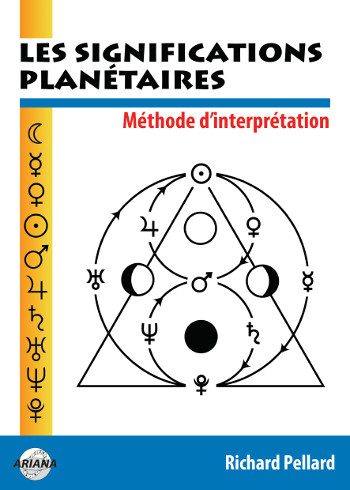
Les significations planétaires
par
620 pages. Illustrations en couleur.
La décision de ne traiter dans ce livre que des significations planétaires ne repose pas sur une sous-estimation du rôle des Signes du zodiaque et des Maisons. Le traditionnel trio Planètes-Zodiaque-Maisons est en effet l’expression d’une structure qui classe ces trois plans selon leur ordre de préséance et dans ce triptyque hiérarchisé, les Planètes occupent le premier rang.
La première partie de ce livre rassemble donc, sous une forme abondamment illustrée de schémas pédagogiques et tableaux explicatifs, une édition originale revue, augmentée et actualisée des textes consacrés aux significations planétaires telles qu’elles ont été définies par l’astrologie conditionaliste et une présentation détaillée des méthodes de hiérarchisation planétaire et d’interprétation accompagnées de nombreux exemples concrets illustrés par des Thèmes de célébrités.
La deuxième partie est consacrée, d’une part à une présentation critique des fondements traditionnels des significations planétaires, d’autre part à une présentation des rapports entre signaux et symboles, astrologie et psychologie. Enfin, la troisième partie présente brièvement les racines astrométriques des significations planétaires… et propose une voie de sortie de l’astrologie pour accéder à une plus vaste dimension noologique et spirituelle qui la prolonge et la contient.
Téléchargez-le dès maintenant dans notre boutique
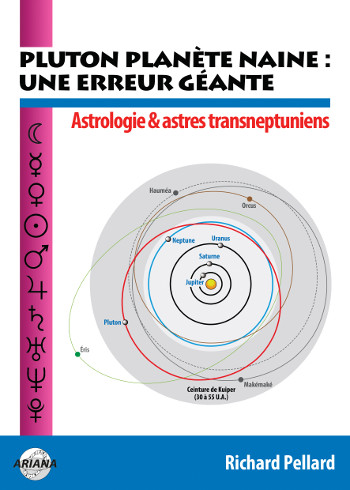
Pluton planète naine : une erreur géante
par
117 pages. Illustrations en couleur.
Pluton ne fait plus partie des planètes majeures de notre système solaire : telle est la décision prise par une infime minorité d’astronomes lors de l’Assemblée Générale de l’Union Astronomique Internationale qui s’est tenue à Prague en août 2006. Elle est reléguée au rang de “planète naine”, au même titre que les nombreux astres découverts au-delà de son orbite.
Ce livre récapitule et analyse en détail le pourquoi et le comment de cette incroyable et irrationnelle décision contestée par de très nombreux astronomes de premier plan. Quelles sont les effets de cette “nanification” de Pluton sur son statut astrologique ? Faut-il remettre en question son influence et ses significations astro-psychologiques qui semblaient avérées depuis sa découverte en 1930 ? Les “plutoniens” ont-ils cessé d’exister depuis cette décision charlatanesque ? Ce livre pose également le problème des astres transplutoniens nouvellement découverts. Quel statut astrologique et quelles influences et significations précises leur accorder ?
Enfin, cet ouvrage propose une vision unitaire du système solaire qui démontre, chiffes et arguments rationnels à l’appui, que Pluton en est toujours un élément essentiel, ce qui est loin d’être le cas pour les autres astres au-delà de son orbite. Après avoir lu ce livre, vous saurez quoi répondre à ceux qui pensent avoir trouvé, avec l’exclusion de Pluton du cortège planétaire traditionnel, un nouvel argument contre l’astrologie !
Téléchargez-le dès maintenant dans notre boutique